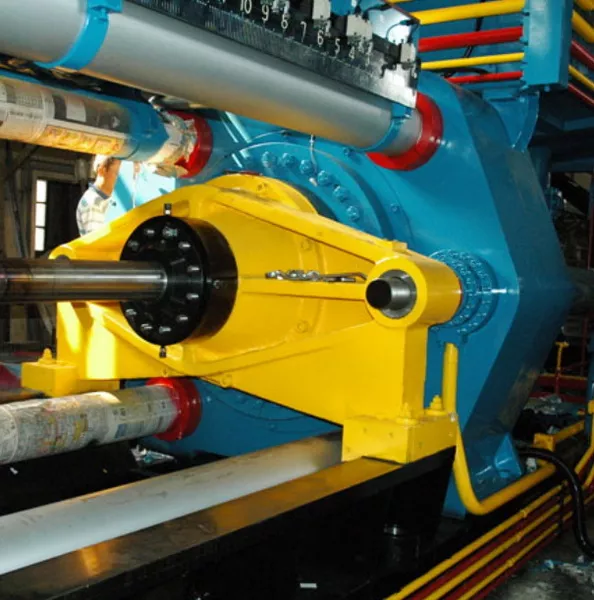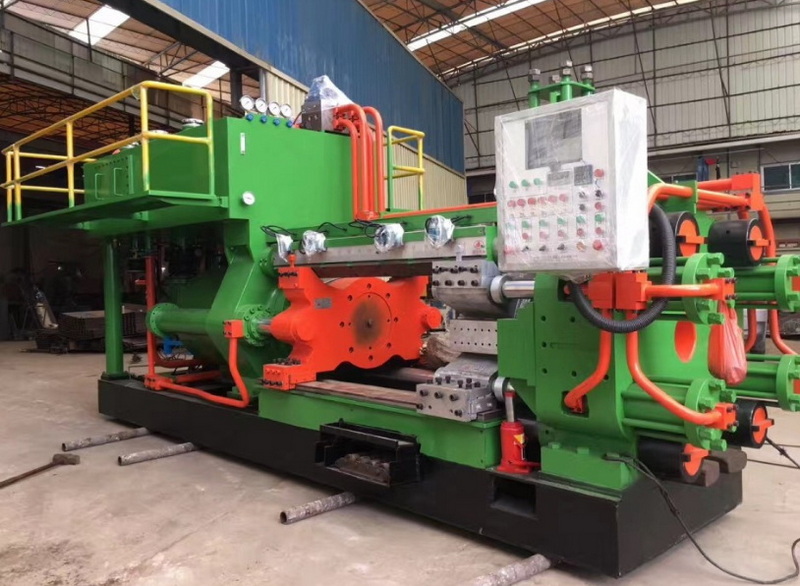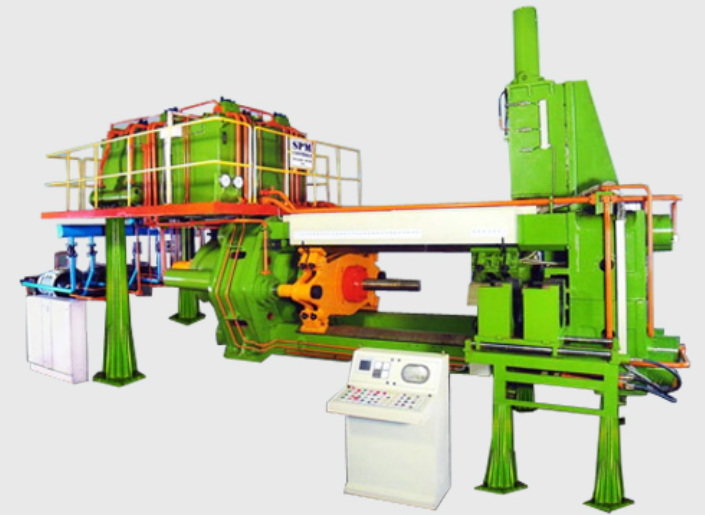Content Menu
● Introduction to Quenching Systems
>> Importance of Quenching System Manufacturers and Suppliers
● Leading Quenching System Manufacturers and Suppliers in Japan
>> 1. Nippon Steel & NIPPON STEEL ENGINEERING CO., LTD.
>> 2. JFE Steel Corporation
>> 3. Okuma Corporation
>> 4. JTEKT Corporation
>> 5. Tamayakin Co., Ltd.
● Quenching Technologies and Innovations in Japan
>> Vacuum Heat Treatment and Oil Quenching
>> High-Frequency Quenching (WIQ Technology)
>> Three-Dimensional Hot Bending and Direct Quench (3DQ)
>> Laser Quenching and Additive Manufacturing Integration
>> Smart Factory and IoE Integration
● Applications of Quenching Systems
● Environmental and Energy Efficiency Considerations
● OEM Services and Customization
● Conclusion
● Frequently Asked Questions (FAQs)
>> Q1: What is the main advantage of Japan's quenching systems?
>> Q2: How does Coke Dry Quenching (CDQ) benefit steel production?
>> Q3: What industries benefit most from Japanese quenching system manufacturers?
>> Q4: Can quenching systems be customized for specific OEM needs?
>> Q5: What certifications do Japanese quenching service providers hold?
Quenching systems play a critical role in the heat treatment industry, providing rapid cooling processes that enhance the mechanical properties of metals such as steel and aluminum. Japan, known for its advanced manufacturing technologies and precision engineering, hosts some of the world's leading quenching system manufacturers and suppliers. This article explores the top quenching system manufacturers and suppliers in Japan, highlighting their technologies, innovations, and contributions to the global market. We will also discuss the applications of these systems and provide a comprehensive overview of the industry landscape.

Introduction to Quenching Systems
Quenching is a heat treatment process where metals are rapidly cooled from a high temperature to alter their microstructure, improving hardness, strength, and durability. Quenching systems are essential in industries such as automotive, aerospace, construction, and manufacturing, where material performance is critical.
Importance of Quenching System Manufacturers and Suppliers
- Provide advanced equipment for precise temperature control and rapid cooling.
- Innovate to improve energy efficiency and environmental sustainability.
- Support OEMs and manufacturers with customized solutions.
- Enable production of high-performance materials with consistent quality.
Leading Quenching System Manufacturers and Suppliers in Japan
1. Nippon Steel & NIPPON STEEL ENGINEERING CO., LTD.
Nippon Steel is a pioneer in quenching technology, especially known for its Coke Dry Quenching (CDQ) system. The CDQ system cools hot coke from coke ovens using inert gas, recovering heat to generate electricity, making it an energy-efficient and environmentally friendly solution.
- Capacity range: 56 t/h to 280 t/h.
- Over 110 CDQ plants constructed worldwide.
- Advanced automatic operation systems for stable performance.
- Applications in steel production and environmental sustainability.
Nippon Steel's CDQ technology not only improves coke quality but also significantly reduces dust emissions and energy consumption in steel plants. This system exemplifies Japan's commitment to sustainable industrial processes.
2. JFE Steel Corporation
JFE Steel has modernized its quenching equipment with the “Super-RQ” system, featuring advanced cooling control functions that reduce temperature variations during plate cooling. This system enables the production of high-strength steel plates with improved toughness and reduced defects.
- Features include stopping during cooling and variable cooling rates.
- Supports new product development with precise heat treatment.
- Largest class plate treatment size: max thickness 220 mm, max width 5400 mm.
The Super-RQ system's ability to finely control cooling rates allows JFE Steel to meet stringent quality requirements for automotive and construction steel plates, enhancing product reliability and performance.
3. Okuma Corporation
Okuma is renowned for its “super multitasking” machines that integrate laser quenching technology with cutting, grinding, and additive manufacturing. Their LASER EX series combines subtractive and additive processes with hardening and coating, offering a comprehensive solution for metal treatment.
- Founded in 1898, based in Nagoya.
- Machines support autonomous operation with eco-friendly technologies.
- Focus on decarbonization and energy-saving functions.
Okuma's integration of laser quenching with other manufacturing processes represents a significant advancement in precision and efficiency, catering to industries requiring complex and high-quality metal components.
4. JTEKT Corporation
JTEKT is a leader in machine tools and flexible automation systems, offering quenching solutions integrated with smart technology. Their machining centers incorporate gear skiving and advanced cooling control, improving accuracy and reducing production time.
- Known for GS200H and GS700H machining centers.
- Pioneers in Internet of Everything (IoE) smart factory connectivity.
- Provides quenching systems for automotive and industrial parts.
JTEKT's smart factory approach enhances production flexibility and quality control, making their quenching systems highly adaptable to evolving manufacturing demands.
5. Tamayakin Co., Ltd.
Tamayakin specializes in heat treatment and quenching services, certified for aerospace and defense industry standards. They offer multi-product, short delivery, and small-lot production systems, with online order and process tracking for client convenience.
- Nadcap-certified and ISO 9001 quality management.
- Offers consolidated service “AINORI” for frequent heat treatment needs.
- Provides technical consultation and next-day delivery options.
Tamayakin's focus on quality assurance and customer service makes it a preferred partner for industries requiring stringent heat treatment standards and rapid turnaround.

Quenching Technologies and Innovations in Japan
Vacuum Heat Treatment and Oil Quenching
Chugai Ro Co., Ltd. developed Japan's first vacuum heat treating furnace with an oil quench system, enhancing the quality and precision of heat treatment processes. Vacuum heat treatment reduces oxidation and contamination, resulting in superior surface finish and mechanical properties.
High-Frequency Quenching (WIQ Technology)
Japan has innovated the WIQ treatment technology, involving two quenching processes to form dual hardened layers, improving fatigue strength and grain refinement in components. This technology is particularly beneficial for automotive parts subjected to cyclic stresses.
Three-Dimensional Hot Bending and Direct Quench (3DQ)
Nippon Steel & Sumitomo Metal Corporation developed 3DQ technology, enabling the formation of ultrahigh-strength automotive parts with complex shapes in a single operation. This innovation reduces manufacturing steps and improves structural integrity.
Laser Quenching and Additive Manufacturing Integration
Okuma's LASER EX series exemplifies the integration of laser quenching with additive manufacturing, allowing localized hardening and coating during the production process. This reduces post-processing time and enhances component performance.
Smart Factory and IoE Integration
JTEKT's quenching systems are integrated into smart factory environments using Internet of Everything (IoE) technologies. This connectivity allows real-time monitoring, predictive maintenance, and adaptive process control, increasing efficiency and reducing downtime.
Applications of Quenching Systems
- Automotive parts manufacturing (engine components, gears, shafts).
- Steel plate production for construction and infrastructure.
- Aerospace components requiring precise heat treatment.
- Industrial machinery and tool manufacturing.
- Environmental applications such as coke dry quenching for steel plants.
Quenching systems are vital in producing components that require enhanced mechanical properties, such as hardness, toughness, and wear resistance. The automotive industry, in particular, benefits from these technologies to meet safety and performance standards.
Environmental and Energy Efficiency Considerations
Japanese manufacturers emphasize energy efficiency and environmental sustainability in their quenching systems. Technologies like Coke Dry Quenching recover waste heat for power generation, while vacuum and laser quenching reduce emissions and energy consumption. These efforts align with global trends toward greener manufacturing.
OEM Services and Customization
Many Japanese quenching system manufacturers offer OEM services, providing customized solutions tailored to client specifications. This includes adapting quenching parameters, system sizes, and automation levels to meet diverse production needs, from small-lot specialized parts to large-scale industrial components.
Conclusion
Japan's quenching system manufacturers and suppliers stand at the forefront of heat treatment technology, combining innovation, precision, and sustainability. Their advanced systems support a wide range of industries globally, delivering superior material properties and efficient production processes. For OEMs and manufacturers seeking reliable quenching solutions, Japanese companies offer unmatched expertise and cutting-edge technology, backed by strong commitments to environmental responsibility and smart manufacturing.

Frequently Asked Questions (FAQs)
Q1: What is the main advantage of Japan's quenching systems?
A1: Japan's quenching systems are known for their precision, energy efficiency, and integration of smart technologies, enabling high-quality and environmentally friendly heat treatment processes.
Q2: How does Coke Dry Quenching (CDQ) benefit steel production?
A2: CDQ recovers heat from hot coke to generate electricity, reduces dust emissions, and improves coke quality, making steel production more sustainable.
Q3: What industries benefit most from Japanese quenching system manufacturers?
A3: Automotive, aerospace, construction, and heavy machinery industries benefit significantly due to the high-performance materials produced through advanced quenching.
Q4: Can quenching systems be customized for specific OEM needs?
A4: Yes, many Japanese manufacturers offer OEM services and customized quenching solutions tailored to client specifications and production requirements.
Q5: What certifications do Japanese quenching service providers hold?
A5: Leading providers like Tamayakin hold Nadcap certification, ISO 9001, and aerospace industry-specific certifications ensuring high standards of quality and reliability.






















